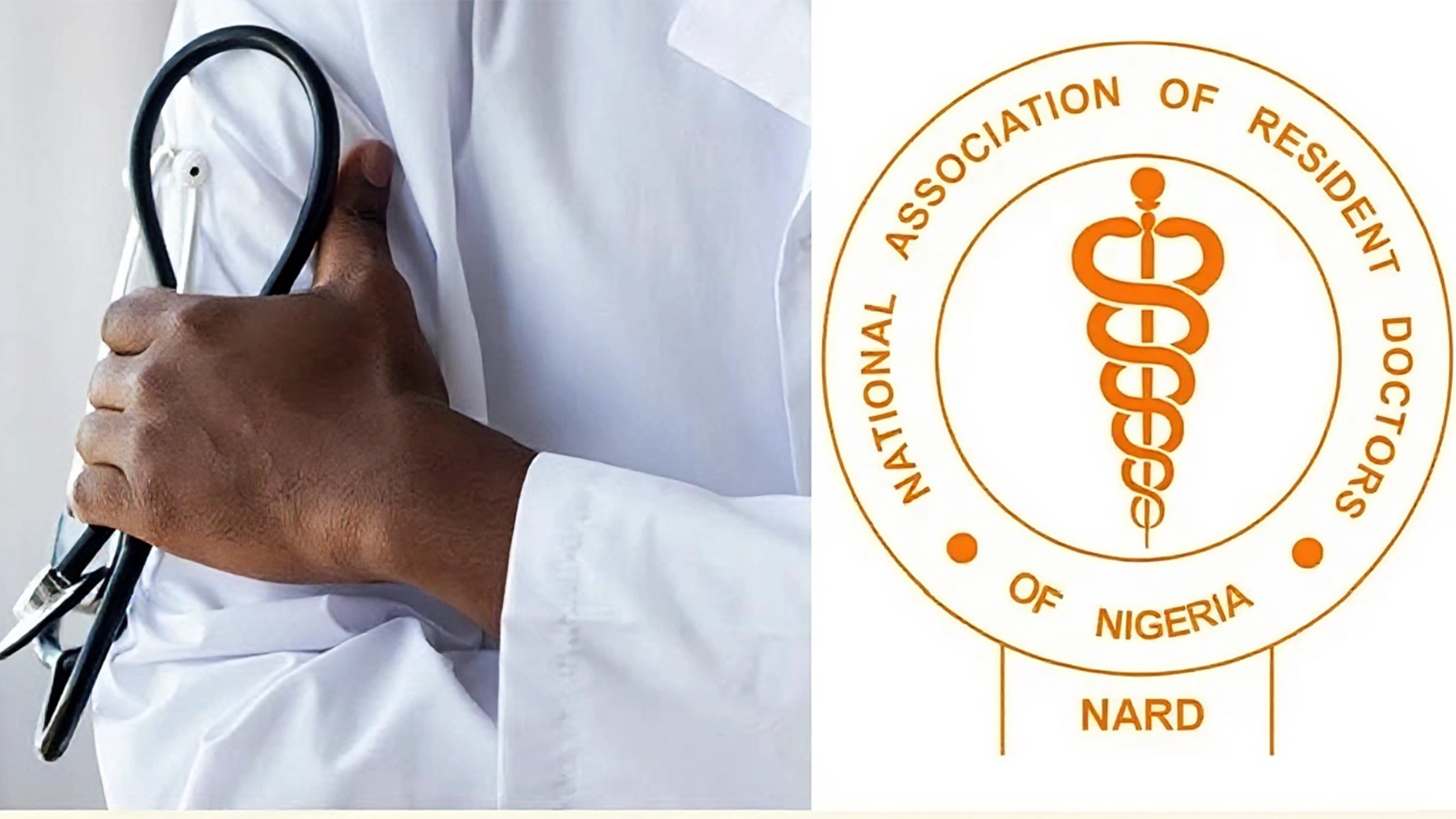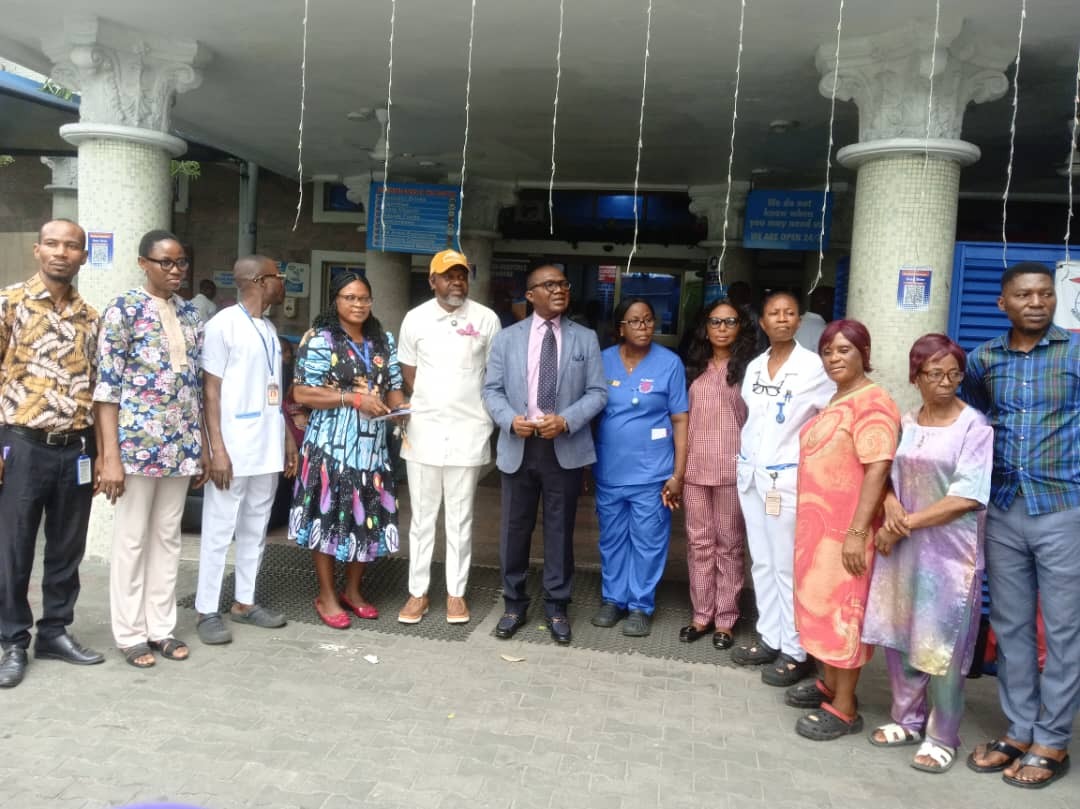
The Minister of State for Health and Social Welfare, Dr. Tunji Alausa, has unveiled four priorities to tackle health challenges in Nigeria during his visit to the National Orthopaedic Hospital, Igbobi, Lagos (NOHIL).
Emphasising the significance of these priorities, the Minister outlined a comprehensive strategy, which includes enhancing healthcare governance, improving population health outcomes, fostering growth within the healthcare sector, and recognising health as an integral part of social and national security.
He said: “We have laid out four big priority areas that we will be working on in the programs of health to deliver to the people of Nigeria and these priorities align with the eight priority areas of President Bola Ahmed Tinubu. We will improve healthcare governance by strengthening the healthcare system and making everybody more accountable.
“We will improve our population’s health outcomes by really strengthening our healthcare delivery system and third, we would unlock the value chain of our healthcare sector so that we can begin to create jobs, durable, good-paying jobs for the young citizens of this country and then we’re beginning to look at health beyond physical security, health as social security and national security.”
During the visit, the Medical Director of NOHIL, Dr. Mustapha Faiz Alimi, warmly welcomed the Minister, reminiscing on the Minister’s past role as the Chairman of the board. Alimi shed light on the hospital’s notable accomplishments, indicating its dedication to providing exemplary orthopaedic care to patients. He also shed light on the challenges the institution is currently facing, primarily pertaining to funding and infrastructure.
Alimi highlighted: “In terms of space, we are large. Many of our facilities are walls. Our youngest walls were commissioned by former President Buhari when he was General. We have walls that are over 60 years old. We have areas in the hospital that are close to 80 years old. We have staff quarters that are aging and we are struggling to maintain them. The one that is most pressing is the oxygen plant.
“Our oxygen plant has been down for four weeks. I know most of you have gone to the hospital. The cost of providing oxygen to the hospital, on a weekly basis, is between N1 million and N1.1 million. The cost of repairing it about four weeks ago was over N40 million, it was about N40 million. 40 million is in the midst of the things that we need to do. If we remove it from our Internally Generated Revenue (IGR), it will shift the world significantly. So, we are appealing to you, Honorable Minister of State for Health and Social Welfare, to help us take a very urgent look at it because if we wait for 40 weeks, we will have spent N40 million and we will still not have a new supply.”
He added, “In a world where cancer services are becoming very important, we need to have a robust histopathology unit. Unfortunately, we have the equipment, but we don’t have the appropriate space to put them.”
I am telling you this. I started this histopathology previously. The truth about this institution is that for every two patients that come in here, at least one will pass through the histopathology department. The histopathology department is a very big unit and you cannot but appreciate what they do, their contributions to the hospital services of our patients. I will take it that our team needs facilities.”
Addressing these concerns, Alausa acknowledged the critical role of Federal Tertiary Hospitals in bolstering the country’s healthcare system. He indicated the commitment of the Ministry to provide necessary support to the institutions and collaborate with sub-national governments to enhance healthcare delivery at the grassroots level.
The Minister further elaborated: “Our efforts are geared towards not only strengthening Federal Tertiary Hospitals but also collaborating with state governments to improve their healthcare capabilities. We have concrete plans in place to augment the production of healthcare professionals by doubling the enrollment in medical schools and nursing programs. This proactive approach aims to address the current deficit and prevent the exodus of medical practitioners abroad.”
Mentioning what the citizens should be expecting he said, “What the citizens should expect is comprehensive, very good healthcare delivery. That’s what the president has mandated us to do.
Addressing the challenges highlighted by the MD, he said, several of the priority areas of the MD align fit well into these four priority areas and that’s what we’re aggressively, meticulously, continuously working on and we’re already working, and we’re beginning to see some of the effects and the effect will magnify in the next several months.
Also, addressing the japa syndrome of Nigerian medical practitioners, he said: “In the next few months, we would come up with more comprehensive numbers, which are more robust numbers, which would be much larger than the available slots in the internship of various allied medical specialties. So those are being addressed, and we have a comprehensive plan to address those issues.
“Today, if you look at some of the data, there’s almost 18 million human resources for health deficits all across the world. Nigeria is not an exception. The unfortunate situation we have in Nigeria is people are going to Western world and to other countries to seek employment but we’re beginning to improve our infrastructures, so often people will start coming back and beyond that, before people start coming back, we also have to increase production and you’ve heard me in several of my interviews, press releases, on how we’re going to increase the production in the healthcare sector.
“We’re going to double. We put plans in place to double the enrollment in medical school in the next academic year. I’ve met with the registrar of the Nursing and Midwifery Council on how to also double the number of nurses we’re training and graduating every year.
“We’re doing it with other specialties as well, the medical laboratory scientists and other things. We are working very hard to increase and double our production of human resources for health. That’s the way we can quickly plug the hole, the leakage we have no so, as we continue to do that and improve our healthcare delivery system, people will start coming back to the country, and this problem will be a problem in the past, in the next few years.”






